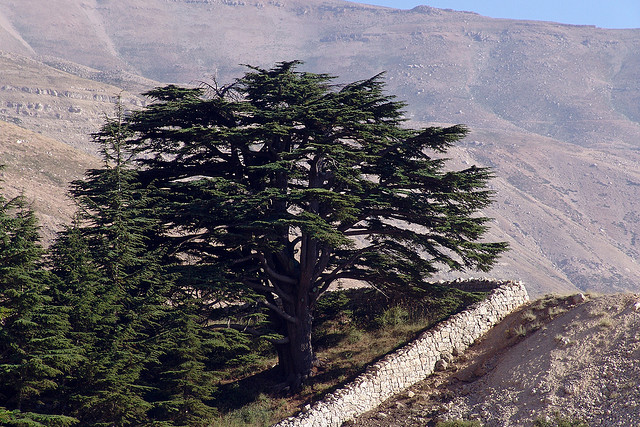
by Charles Fred
Mount Lebanon is one of the most famous historic spot in the country, which was once adorned with the extensive reserves of Cedar trees. Today this tree is the national emblem of Lebanon. This tree reserve, which is called as Cedars of God, is today shrunk to a very small territory and is being declared as the “protected area” by the government of Lebanon. Cedar tree is considered highly sacred near to humans since the ancient times. Cedar trees of the northern Lebanon were cherished and dearest collection of the architectural wood that was stolen and defrosted by different invaders and timber stealers in different eras. The Phoenicians, the Egyptians, the Assyrians, the Babylonians, the Persians, the Romans, the Israelites and the Turks are the most prominent who deserted this area and brought the precious wood of cedars to their respective homelands, where they used the same in building their constructions especially the sacred structures. These ancient trees have been referred in Bible and many other religious texts also.

This tree “Cedrus libani” belongs to the evergreen Pinaceae which is actually native to the Mediterranean region. The tree is known for its typical needle shaped leaves and it can grow up to 40 m (130 ft) tall, with a trunk up to 2.5 m (8 ft 2 in) in diameter. The Lebanon cedar doesn’t flower until it is 25-30 years old. The flowers, or catkins are uni-sexual, with both male and female flowers on the same tree. The 2-inch catkins are reddish in color.

Today, it is also displayed in the national flag of Lebanon and on the Lebanese coat of arms as a symbol of nationalism. People also call it as Cedars of Lebanon and it is of so historic importance; the country is sometimes referred as the land of cedars as well. In 1998, the Cedars of God were added to the UNESCO list of World Heritage Sites. The protection of this site is ensured by the joint action of the Maronite Patriarchate, the Municipality of Bcharré, the Lebanese army and the Committee of the Friends of the Cedar Forest.

Located at about 2,300 meters above sea level, this small forest of cedar trees is spread over approximately 400,000 square feet and includes the treasure of the stunning 400 Lebanon cedars. It is one of the most worth seen gifts of nature, which is witness of thousands of years old human history of blood and glory. In different literatures and manuscripts, these trees are attributed as insignias of persistent struggle, gallant attitude, towering dignity and masterly strength by the writers.
